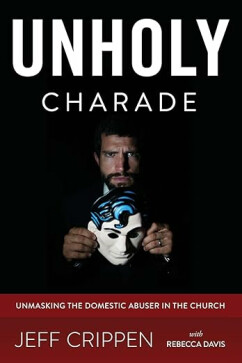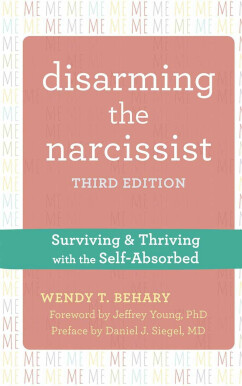Over these last few weeks, we’ve been looking at what healthy relationships look like. Healthy relationships don’t rely on manipulating or bullying people. Healthy relationships are built on mutual trust and respect. They are built on freedom: the freedom to give or not give, to be generous sometimes, and to need help at other times. That’s the ebb and flow of healthy reciprocation. You can gain a few practical tips by reading Essential Relationship Skills and How to Build Fulfilling Relationships.
Inevitably, some people will hurt us, take advantage of us, or just not know when to say “no” or “stop.” Boundaries are healthy limits we place around ourselves in order to care for ourselves firstly, so that we can care for others secondly. “Above all else, guard your heart, for everything you do flows from it” (Proverbs 4:23).
Boundaries
In their book Boundaries, Dr. Henry Cloud and Dr. John Townsend define boundaries simply as “what is me” and “what is not me?” Visualize a fence around a property. A healthy boundary defines and protects what belongs to "me." Healthy management of our own soul and well-being keeps things that nurture us inside the fence and keep things that harm us outside.
In chapter two, they answer the question, what do I have the power and responsibility to control? What is under my management? Here are a few things we are "on the hook" for. I can’t blame others for my own, nor can others blame me for theirs:
- Feelings
- Attitudes and beliefs
- Choices
- Choosing our values
- Setting our limitations
- Resources and gifts
- Thoughts
- Desires that we nurture
- Love
There are examples of boundaries throughout the scriptures: “For even when we were with you, we gave you this rule: ‘The one who is unwilling to work shall not eat.’” Apparently, freeloading—gleaning all the fun without shouldering the hard work and responsibility—was a thing back then as well. Communal boundaries can be a way the community forces each individual to play fair. You could even make a case to say laws are boundaries society places on extreme behavior.
But not everyone grows up knowing healthy boundaries. Envy, greed, lust, ambition, control—sin and selfishness—incite us to take what belongs to others. And sometimes, victims don’t know how to stand up to others and say “no” or “enough is enough.” Sometimes, they are literally not strong enough. Abusers are often masterfully adaptive at manipulating people and continuously violating a person’s personal boundaries. In unhealthy relationships, the give and take is almost always in one direction—a direction that benefits the abuser.
The Tactics of Abusers
Jeff Crippen exposes the mentality of abusers in his book Unholy Charade. Abusers lack shame and empathy. They can’t emotionally empathize with their spouse or children or others. The world revolves around their needs and their desires. Abusers often operate out of a sense of entitlement—I have the right to govern these people. Abusers exert power and control and will use any number of methods to maintain that control. They have double standards for themselves and what the people around them are allowed to do. They throw tantrums or refuse to be corrected. The world ultimately revolves around their right to be at the center of the relationship or the situation.
Abusers will intuitively use any number of tactics to control people. Gaslighting is common, in which they will purposefully cause a person to doubt their own senses. Abusers will change the rules constantly to maintain unpredictability and to keep the people they control off balance. They will tell stories that flip the script or turn reality on its head. They manipulate people’s words or deny reality so that victims may start to doubt themselves or feel like they are going crazy. Abusers, immediately after hurting someone, can even flip into the role of playing the victim or blaming the person they just abused. They are classic minimizers of their own faults or responsibilities; everything is the fault of others, and they can’t seem to own responsibility.
Abusers may even put on a theatrical display of emotions in public to get what they want, but "behind closed doors," they regress into something else. They can be affectionate in one moment and cruel and demeaning to someone the next instant. They have an uncanny knack for turning the world against the people they control. They can gather allies and make friends and family believe their side of the story. They are masterful con artists.
Not everyone who is acting selfishly is a narcissist or abuser, and I don’t think we should throw those labels around lightly. But I do believe our broken humanity, shaped by broken relationships and fueled by individualistic American culture, is fostering a higher degree of “self-centeredness” than we’ve ever seen in our communities.
Setting Boundaries or Getting Away
If you’ve noticed unhealthy patterns in otherwise reasonable relationships, you may need to put a plan together for yourself. You can expect that confrontation, honesty, and “pushing back” in order to set your own healthy boundaries is going to take courage and persistence. The other person may get upset that you are no longer accommodating their “needs.” They may call you “uncaring” or “cold.” But remember, according to a Biblical definition, manipulation, name calling, and coercion are not the response of love or the response of healthy people. “There is no fear in love. But perfect love drives out fear” (1 John 4:18).
If you’re in an emotionally abusive relationship, find someone that you trust and ask them to help you. You will need advocates and friends to help you disentangle from the situation. [You may also need to call the Domestic Violence Hotline: 800-799-7233 or Text “BEGIN” to 88788]. No abuse is healthy, and the severity of the abuse will change how urgent your response is or how much grace you can extend to try to change a “toxic” relationship that is destroying you or your children.
Cloud and Townsend advocate for healthy distancing and separation to give people space to reset or thaw out. “Sometimes in abusive marriages the abused spouse needs to keep emotional distance until the abusive partner begins to face his or her problems and become trustworthy.”[1]
Remember, healthy relationships are built on trust, and freedom, and mutual respect. No human has the right to own another human or imprison them in a marriage that demands they only ever serve the other’s needs. That’s not marriage, that’s slavery, and it doesn’t reflect the character of Jesus.
The Trinity models mutual love, mutual sacrifice, and mutual respect. That’s not a one-way street. Unity flowing in community is a powerful thing, “I in them and you in me—so that they may be brought to complete unity. Then the world will know that you sent me and have loved them even as you have loved me” (John 17:23). God can raise any low place up and bring down any mountain. It may be a very long and hard road ahead, but healing is possible for the abused and the abuser.
A Few Helpful Resources:




[1] Henry Cloud, Boundaries, 38.
Tags: hope, relationships, control, boundaries, respect, responsibility, healthy, empathy, detached, unhealthy, entitled, reciprocity, gaslighting, narcissist, abuser